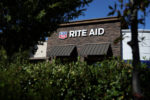
America’s Largest Food and Retail Union Applauds Cities for Passing New Hazard Pay Mandates Recognizing Risks Grocery Workers Still Face
WASHINGTON, D.C. — Today, the United Food and Commercial Workers International Union (UFCW), which represents 1.3 million workers in grocery, meatpacking, and other frontline industries, applauded action by cities to mandate hazard pay for frontline grocery workers still facing the daily threat of COVID infection on the job. A new report today from the Brookings Institution highlights a growing number of municipalities enacting these requirements for grocery chains to provide hazard pay to their workers still on the frontlines of the pandemic.
UFCW International President Marc Perrone released the following statement:
“America’s grocery workers have been on the frontlines since this pandemic began and continue to put their lives on the line to help all our families put food on the table. As this pandemic grows more dangerous, cities and counties are stepping up to ensure these brave and essential workers – both union and non-union – receive the essential hazard pay they have earned for the risks they face every day on the job.
“The actions taken to protect frontline essential workers in California and Seattle are just the beginning. For the sake of public and worker safety, we are urging Congress and all elected leaders to take action and join this critical effort to compensate workers who continue to face these daily risks.
“In addition, we are urging CEOs of major food and retail companies to finally accept their responsibility and provide hazard pay for these brave workers. The pandemic has created windfall profits for these companies and those profits were earned by these brave workers. Now is the time for these companies and our elected leaders to act and do what is right.”
BACKGROUND:
A new Brookings Institution report highlights the growing momentum for grocery hazard pay as more and more cities and counties act mandating the critical lifeline for those most at risk:
- Santa Monica, Calif: On January 12, the Santa Monica city council approved $5 per hour “hero pay” for grocery workers at large employers.
- Seattle: On January 25, the Seattle City Council unanimously passed a similar mandate—citing Brookings research requiring certain large grocery and food retail businesses with at least 500 employees globally to pay $4 per hour hazard pay for grocery workers.
- Los Angeles County: On January 5, the Los Angeles County Board of Supervisors voted to draft a mandate—also citing Brookings research—requiring large grocery and drugstore chains to provide workers a $5 per hour pay increase for at least 120 days.
- San Francisco: Earlier this month, San Francisco passed a nonbinding ordinance urging companies to pay hazard pay.
- San Jose, Berkeley, Santa Ana, Los Angeles, West Hollywood, Santa Clara, and San Mateo: Several other California cities are also considering mandates.
UFCW has been a leading national voice for frontline workers during the pandemic and recently urged governors in all 50 states to prioritize essential workers for COVID-19 vaccine access. In recent months, UFCW’s national hazard pay campaign has already helped secure new hazard pay deals helping over 120,000 grocery workers across the country.
COVID NUMBERS: UFCW has been a leading national voice for frontline food workers during the pandemic and recently highlighted the impact on the union’s essential workers, confirming there have been at least 124 grocery worker deaths and 25,760 grocery workers infected or exposed. Across all the industries UFCW represents, the union has reported there have been at least 374 frontline worker deaths and over 69,900 frontline workers infected or exposed.
###
UFCW International is the largest private sector union in the United States. UFCW International represents 1.3 million professionals and their families in healthcare, grocery stores, meatpacking, food processing, retail shops and other industries. Our members serve our communities in all 50 states, Canada and Puerto Rico. Learn more about the UFCW at ufcw.org.



